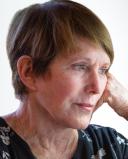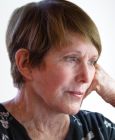Child Development
Surviving a Car Crash
Personal Perspective: How a car crash ended in a valuable lesson.
Posted December 5, 2022 Reviewed by Ekua Hagan
When I was 19, I was in a serious car accident.
I’d gone with my parents on a trip to Palmer Gulch Lodge in the Black Hills, an attempt to revisit the happy times we’d spent there when we were a whole family. My parents could only afford one weekend, which was maybe for the best. Nothing felt the way it had years before. My brother, now married, wasn’t with us. In addition, my dad was unemployed that summer, and my mom was drinking heavily. There was no one my age at the Lodge, so I was with my gloomy parents the whole time. Our dog, Callie, was the only one who had fun there, off-leash, leaping like a dolphin through the mountain meadows.
On our drive back home to Wisconsin, we stopped halfway in a small town on the Minnesota border. Most of the hotels were booked for some special event, so we had to settle for a seedy inn; one tiny room for my mom and me, and an even smaller room down a dingy hall for my dad.
In the middle of the night, I was awakened by a flashing red light. After a few seconds, I realized it was the Room-to-Rent sign blinking above the hotel entrance. The flashes of red light were landing on the walls of our room and splashing onto a rocking chair. The chair was rocking. By itself. I thought later that maybe I dreamed this. Or maybe there was a wind pushing the chair. Whatever it was that made the chair rock, dream or real, it scared me. And then suddenly, for no obvious reason, I felt tremendously sad. I closed my eyes tight and made myself fall back into a restless sleep.
In the morning, my mother said, “Let’s get out of here. This place is full of sadness.”
In the car, I asked my mother why she’d said the place was sad. “A very sad woman died in that room,” my mother told me. “A hooker maybe. She was rocking and crying all night last night.”
My heart skipped a beat. “I saw the chair rocking, too, Mom,” I said. “I thought it was a dream.”
“Not a dream,” my mother said. We didn’t talk about it again until hours later.
The whole way back to Milwaukee I felt sad, with a sadness bigger than what I’d felt the previous night, different from being sad about some supposedly dead woman lingering. My sadness felt global and was mixed with a sense of impending danger. My mother believed in premonitions and would later tell me she was sure the sadness in that hotel room had been a warning.
My parents let me drive for most of our return trip. It was raining hard as we neared Milwaukee’s downtown area. There’d been an accident on the opposite side of the highway. There were red lights flashing and sirens wailing. Then right in front of us, in the left-hand lane, a car stopped, and a man jumped out and leaped over the median. (I would learn later he was a minister who went to help the victims in that crash.)
I stopped behind the empty car. The next few minutes happened in slow motion. My father, who was in the backseat, put a hand on my shoulder and calmly said, “The car behind us is going too fast to stop. Hold the steering wheel tight. Put your foot hard on the brake.” I did as he said. In seconds our car flew forward with the sound of breaking glass and crushing metal.
Both my parents were thrown from their seats to the floor and were stunned but didn’t seem badly hurt. Callie landed in my lap, barking madly, biting at the air, trying to protect us all from an invisible enemy. I was still in my seat because I had a seat belt on. The car was full of the smell of the Muguet des Bois powder that had been in a box in my suitcase in the trunk. It now covered the car’s interior.
The EMTs and police quickly surrounded us. My parents let themselves be carried off in an ambulance to check for unseen injuries, leaving me and Cal alone in the crumpled car, Cal on my lap, both of us silent. Me, numb.
A policeman’s face appeared in my window. “You aren’t safe here,” he said. “Come wait in my car.” Safe in the patrol car, Cal and I watched the action, the flashing red lights, people standing around, talking, and taking notes. Then I saw a man jump out of the car that had hit us. He ran, with a limp child in his arms, to an ambulance on the other side of the median. The child’s face was bloody.
Even then I felt nothing.
The tow truck driver asked me where he should take me and my dog and our wrecked car. I didn’t know what to say, so I said, “Take us home.” I didn’t understand that the car was totaled and there was no point taking it anywhere other than to a dump. The truck driver delivered us and the crumpled car to my parents’ driveway, immediately drawing a crowd of gawking neighbors.
Once inside, I called my boyfriend Jeffrey. When I heard his voice, I broke down. I hadn’t felt scared during or right after the accident. I hadn’t cried when my parents left me to take care of the car and the dog by myself. I hadn’t cried when I saw that injured child. I also hadn’t cried when I woke in that hotel room when the red lights seemed to fill me with an unnamed sorrow. Now, I fell apart.
My parents returned home in a cab. They were sore all over but nothing serious. My mother announced that she was sure now that she’d been right: The sadness in the hotel room had come from a weeping ghost and was a warning that we were about to be in danger. And then, we were.
I didn’t buy the ghost theory. Yes, sadness had been in the air of that rundown hotel room; it had been in our car; it was in all our hearts. It was the sadness we were all carrying from having tried so hard—and failed—to be happy together at Palmer Gulch. Some things aren’t meant to be recovered. Some things are gone forever. Like childhood.
Like a childhood illusion of safety. I’ve never again felt safe driving in heavy rain on a highway. I’m not afraid of flashing red lights or chairs that seem to rock on their own. Or a hotel room containing a miasma of sorrow. But after the accident, I realized for the first time that I would one day die, and it could well happen on a slippery, rainy road. And that changed me.




